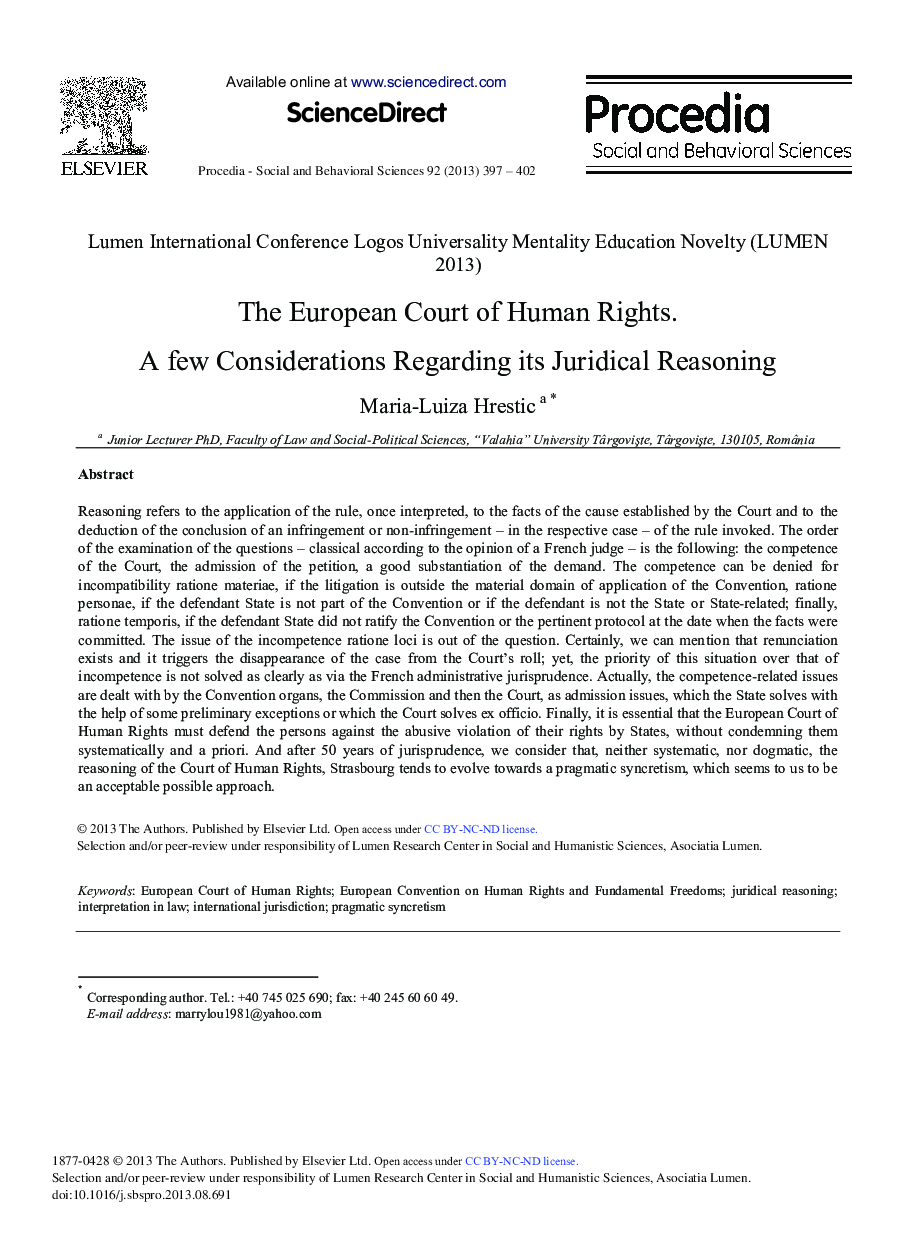| کد مقاله | کد نشریه | سال انتشار | مقاله انگلیسی | نسخه تمام متن |
|---|---|---|---|---|
| 1117947 | 1488467 | 2013 | 6 صفحه PDF | دانلود رایگان |

Reasoning refers to the application of the rule, once interpreted, to the facts of the cause established by the Court and to the deduction of the conclusion of an infringement or non-infringement – in the respective case – of the rule invoked. The order of the examination of the questions – classical according to the opinion of a French judge – is the following: the competence of the Court, the admission of the petition, a good substantiation of the demand. The competence can be denied for incompatibility ratione materiae, if the litigation is outside the material domain of application of the Convention, ratione personae, if the defendant State is not part of the Convention or if the defendant is not the State or State-related; finally, ratione temporis, if the defendant State did not ratify the Convention or the pertinent protocol at the date when the facts were committed. The issue of the incompetence ratione loci is out of the question. Certainly, we can mention that renunciation exists and it triggers the disappearance of the case from the Court's roll; yet, the priority of this situation over that of incompetence is not solved as clearly as via the French administrative jurisprudence. Actually, the competence-related issues are dealt with by the Convention organs, the Commission and then the Court, as admission issues, which the State solves with the help of some preliminary exceptions or which the Court solves ex officio. Finally, it is essential that the European Court of Human Rights must defend the persons against the abusive violation of their rights by States, without condemning them systematically and a priori. And after 50 years of jurisprudence, we consider that, neither systematic, nor dogmatic, the reasoning of the Court of Human Rights, Strasbourg tends to evolve towards a pragmatic syncretism, which seems to us to be an acceptable possible approach.
Journal: Procedia - Social and Behavioral Sciences - Volume 92, 10 October 2013, Pages 397-402